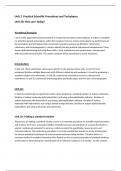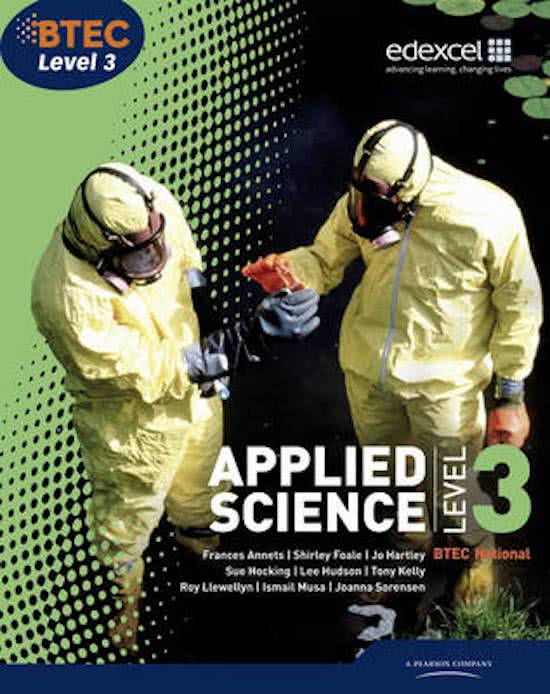Unit 2: Practical Scientific Procedures and Techniques
Unit 2D: How am I doing?
Vocational Scenario:
I am a newly appointed technical assistant at a large chemical plant, Chemcalequip. In order to complete
my induction period and progress within the company I have to review and evaluate my performance of
the procedures and techniques that I have been involved in using so far (titration, colorimetry,
calorimetry and chromatography.) I need to identify the key practical and personal competencies I have
shown whilst developing and using these skills. I must evaluate my own performance, interpersonal
skills and professional practice. The report I produce will be assessed by a senior technician.
Introduction:
In this unit I have undertaken numerous practical's in the previous three units. In unit 2A I had
performed titration multiple times each with different chemicals and equipment. As well as producing a
standard solution and colorimetry. In unit 2B, I performed calorimetry not to be confused with
colorimetry. In unit 2C I performed chromatography specifically paper and thin layer chromatography.
Unit 2A:
In Unit 2A I performed six experiments which were: producing a standard solution of sodium carbonate,
titration of sodium carbonate with hydrochloric acid using a phenolphthalein indicator, titration of
sodium hydroxide with hydrochloric acid using a phenolphthalein indicator, titration of sodium
hydroxide with hydrochloric acid using a methyl orange indicator, titration of sodium hydroxide with
hydrochloric acid using a pH probe and colorimetry.
Unit 2A: Making a standard solution
The process of making a standard solution serves is an essential procedure for scientific experimentation
and analysis. At its core, a standard solution embodies precise concentrations of a solute dissolved in a
solvent, meticulously prepared to serve as a reference point for quantitative measurements and
chemical analyses. This meticulous procedure is not only essential but also serves as the starting point
for various analytical techniques the most common technique being titration. Titration which is a
common method in analytical chemistry relies heavily on the accurate preparation of standard solutions
as the basis for determining the concentration of an unknown substance in a solution. So, the creation





